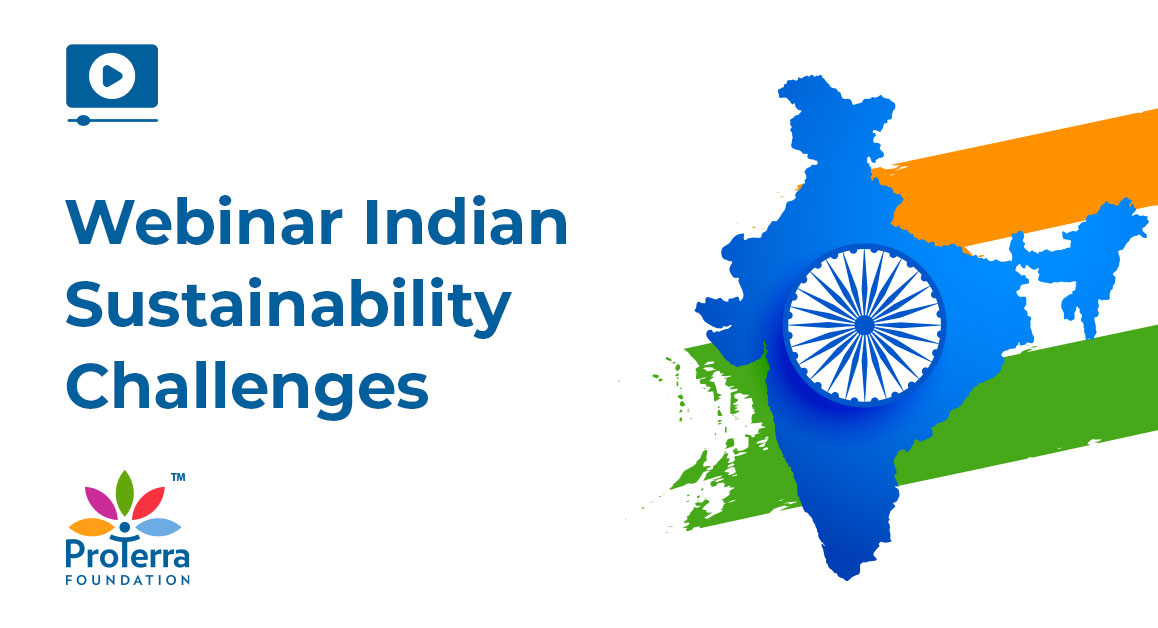Webinar highlights: India’s Sustainability Challenges

The webinar session held on 24 November 2022 and organised together with ADM[1] and Solidaridad[2], focused on the potential, key issues, and challenges of the Indian market and the ProTerra India Smallholders Interpretation.
Emese van Maanen, Managing Director at ProTerra Foundation, started by presenting the certification activities ProTerra Foundation has been carrying out over the years, in different forms in many countries and then provided the rationale behind the need to issue a Smallholders Interpretation[3] of the ProTerra Standard, which is aimed at supporting the continuous improvement of the agricultural activity of smallholders (family farms).
Emese explains that in many parts of the world, there is a gap between the reality and the requirements of sustainable agricultural practices. That is why regional interpretations are necessary to help businesses engage and implement a sustainable approach to their activities. Specifically in India, millions of smallholder farmers produce agricultural products, positioning the country among the largest global soybean producers, together with U.S., Brazil, Argentina, Paraguay, and China.
Stefan Ludwig, Customer Relationship Manager at ADM, talked about the uniqueness of the Indian market and the ProTerra certification process ADM is involved in since 2021 at the Indian Latur plant. Stefan provided a very good strategic overview of the trade in India and the importance of partnerships during the certification process.
Subsequently, Beatrix Richards, Senior Corporate Engagement Manager at Solidaridad, explained about a program that started in January 2021: “Development of a Sustainable and Traceable Supply Chain for Organic Soybean in India” – a public-private partnership with the German Investment Corporation focused on the development of a sustainable and traceable supply chain for organic soybean in India, aimed at improving farming practices, farmers income and health.
Finally, based on the ProTerra Foundation’s experience on the ground in certifying smallholder farmers in India, Emese summarised the key aspects and challenges, such as record-keeping, communication, limited flow of information, the complexity and number of farms in the supply chain and the need for training.
To watch the webinar session and learn more about these issues, access the links to the recording and presentation.
In case you have further questions, please do not hesitate to contact us.